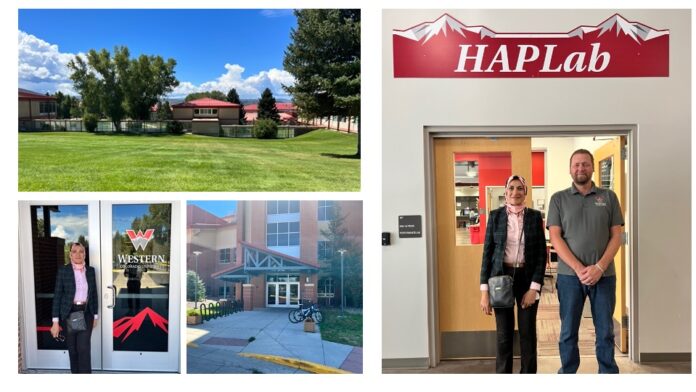In August 2022, we met with Professor Lance Dalleck, Western Colorado University, to draw on his vast expertise in researching the role of exercise in enhancing the quality of life among a diverse group of individuals as they grow older.
Some of Professor Dalleck’s research focuses on how age might affect individuals’ responses to physical training. His research shows that older adults can significantly improve their health outcomes if they receive tailored exercise programmes. For example, recent research highlights that older individuals (50-70 years old) can improve their fitness level to the same relative extent as younger individuals (18-35 years old) with tailored exercise programmes. Professor Dalleck spoke of ensuring that exercise programmes are culturally and individually adopted to have the most effect. He reflected on his experience leading a tailored exercise programme targeting the Maori communities in New Zealand while discussing the potential of such an approach in the Middle East and North Africa Region.
Professor Dalleck discussed a few successful strategies that could support MENARAH’s network efforts through its ‘Movement is a Blessing‘ initiative in promoting the uptake of physical activities among older people in the region—first, raising awareness of how our body is affected by ageing, including a process of muscle-mass reduction. Hence, ensuring regular movement and basic exercise in our daily lives as we grow older is crucial. Second, designing a programme that addresses the needs of a particular group of individuals. For example, suppose obesity and a sedentary lifestyle are among the primary concerns. In that case, a programme specific to cardiovascular exercise embedded within an individual’s daily routine is likely to be more effective than a more generic exercise programme. Second, the cultural context and individual preferences are essential to consider. He gave an example of designing outdoor activities in parks or communal spaces when individuals and groups prefer to be attuned to nature. Or tailoring certain activities to be done at home when individuals cannot access gyms or exercise halls. Thirdly, monitoring progress and health outcomes is important to maintain progress.
The discussion then reflected on the diverse experiences of older communities across the globe, including in North America and Europe. highlighting the importance of ensuring physical activities are situated within the wider lifestyle of the individual, taking into account their health and social facilitators and constraints. He introduced some of Dr Angela Dalleck’s work with the Wellness Elevated, University of Western Colorado, where they train students to work with individuals with different long-term care needs to improve their quality of life through tailored physical fitness programmes. In the following video, Dr Angela Dalleck talks about the benefits of this programme for the individual receiving the training as well as for the students who are working with a diverse group of people. Such an initiative is very valuable for the MENA region to draw on when building the capacity and training of professionals working with a diverse group of older people.
MENARAH looks forward to having further opportunities to work with Professor Dalleck and his team to promote physical activities as part of wider changes people can implement as they grow older. Physical exercise is crucial for all ages, but particularly for older people, to maintain their mobility and perform everyday activities, which are essential for their ability to live independently, enjoy diverse activities and have a fulfilling life experience. Regular physical activities also reduce incidences of falls, which can trigger adverse health consequences. Furthermore, physical activities are linked to improved mood and enhanced levels of wellbeing, with some recent research showing links with cognitive health as well.
Watch Professor Dalleck talking about how ageing affects training recovery:
Founder and Director
Shereen Husseinis a Health and Social Care Policy professor at the London School of Hygiene and Tropical Medicine (LSHTM), United Kingdom.
Shereen Founded the MENARAH Network in 2019, through an initial grant from the Global Challenge Research Fund, UKRI. She is a medical demographer with expertise in ageing, family dynamics, migration and long-term care systems. Shereen regularly collaborates with the United Nations, the World Health Organisation and the World Bank in policy and research focused on ageing in the Middle East and North Africa Region.
Shereen received her undergraduate degree in statistics and a postgraduate degree in computer science at Cairo University. She completed an MSc in medical demography at the London School of Hygiene and a PhD in quantitative demography and population studies at the London School of Economics and Political Science, United Kingdom.



